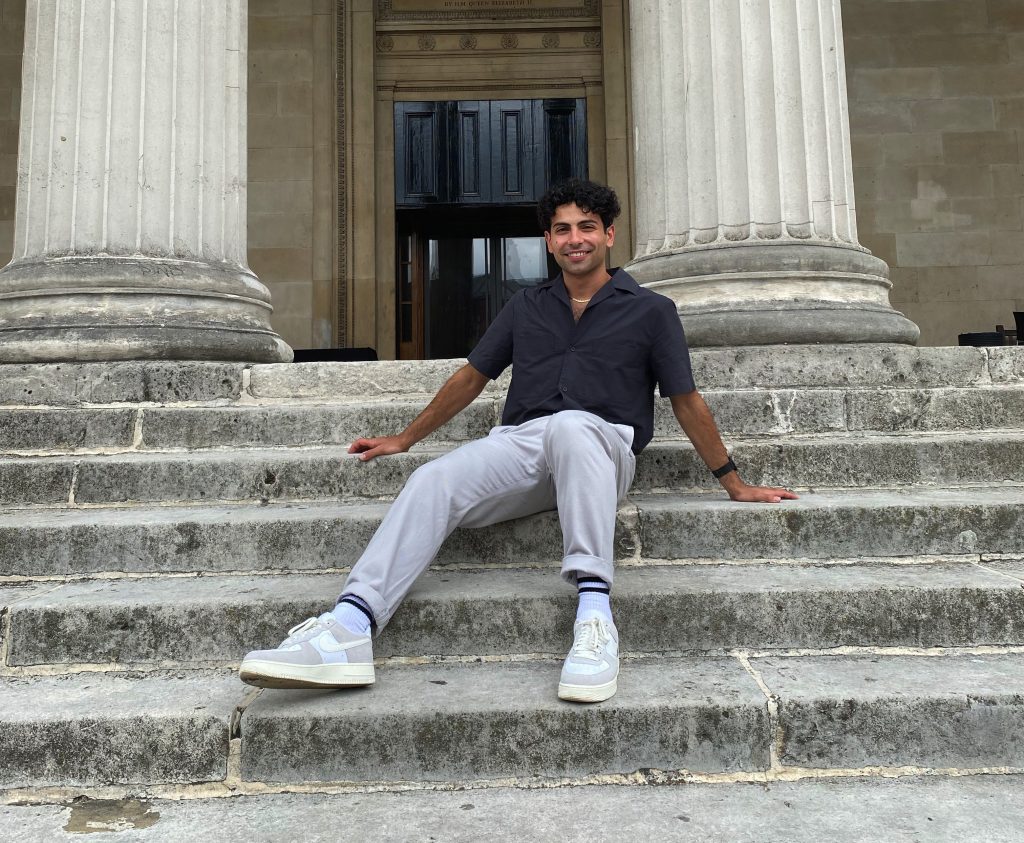The Digital Geographies Research Group is delighted to announce that this year’s winner of the UG Dissertation Prize is Joe Cappai of UCL. Joe’s thesis entitled Tapping into Tech: The Influence of Social Media on Dancers and the Spaces They Use to Dance in London was highly commended by the judging panel for its innovative approach and subject matter.

Joe’s dissertation examined the influence of social media on dancers and the spaces they used to dance in London, highlighting the ways social media constructs virtual spaces of dance in the city. Joe undertook a mixed-methods approach, including semi-structured interviews analysed in conjunction with geotagged Twitter data and data from the Greater London Authority’s Cultural Infrastructure Map.
Joe’s work concluded that the physical and virtual spaces of dance in London are hybridised, aligning with wider arguments made by de Souza e Silva (2006; 2013), suggesting that social media greatly influences the physical spaces of dance in the city. This research also evidenced the emergence of virtual dance spaces in London, which have increased the accessibility of dance. The work also showed how dancers selectively curate their digital identities, contradicting the assumption that social media gives people a platform for unrestricted self-representation, and serves to reproduce the inequalities often found in physical dance spaces.
Responding to the news of his win Joe Cappai said, “At age 13, I was told there was little hope of passing my GCSEs because of my dyslexia, let alone getting into a university. Nearly a decade later, I was both over the moon and shocked to learn that I won this prize from the DGRG!”
He went on to say, “My dissertation allowed me to bridge my two passions, dance and technology. I would like to thank all the dancers who took part in this research, despite what has been a very challenging time for the industry; my supervisor Dr Caroline Bressey, for her invaluable insights; and my friends and family, especially my parents, for their support throughout my university journey. I also extend my gratitude to the DGRG for this incredible recognition of a dyslexic, first-generation university graduate from an immigrant family! The digital is changing the way we think and write about geography, and I am incredibly proud to have made a very small contribution to this exciting and emerging field”.
Joe’s dissertation supervisor, Dr Caroline Bressey said “Working during the era of COVID-19 has been very difficult for all students and staff; we all had to adapt to a lot of change very quickly. Restrictions around field work seemed especially hard to overcome and Joe had to change his plans for how to investigate dancers and their use of virtual dance spaces, but he developed creative methods to realise his project and still managed to explore much of what he originally hoped to investigate. In doing so he produced a work that reflects his great love for dance as an artform and respect for the dancers he spoke to. As my own work on the digital mostly focuses on nineteenth century archives, I particularly enjoyed reading the insights he drew out from his interviewees’ experiences of trying to enjoy, resist and make the best of the digital world they found themselves in.”
Doug Specht, the DGRG prize coordinator, also added his congratulations, stating, “on behalf of everyone at the digital geographies research group, I want to say well done and many congratulations on this work. We wish you all the best for everything you go on to do with your geography degree and hope you will continue to find ways of bringing together geography and dance”.
The Digital Geographies Research Group (DGRG) undergraduate dissertation prize recognises outstanding work in any area of digital geography. DGRG accepts entries from all European undergraduate degree programmes based upon original research that demonstrate a high degree of critical analysis and/or innovative and sophisticated methodologies.
The 2022 Prize will be open for entries from the spring. Follow us on Twitter or keep an eye on the Royal Geographical Society dissertation prize pages for further details.